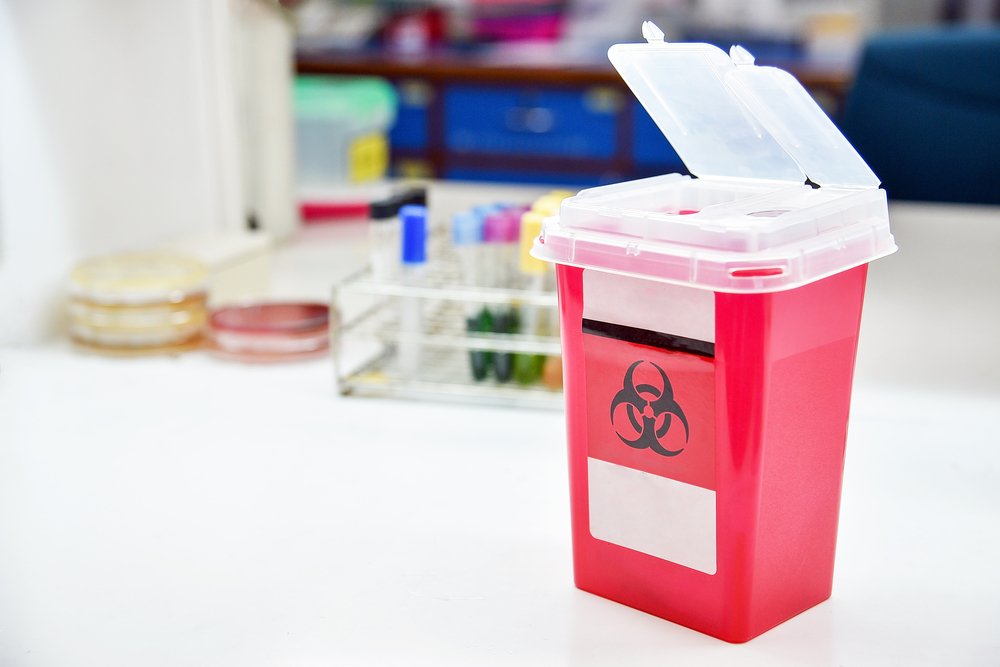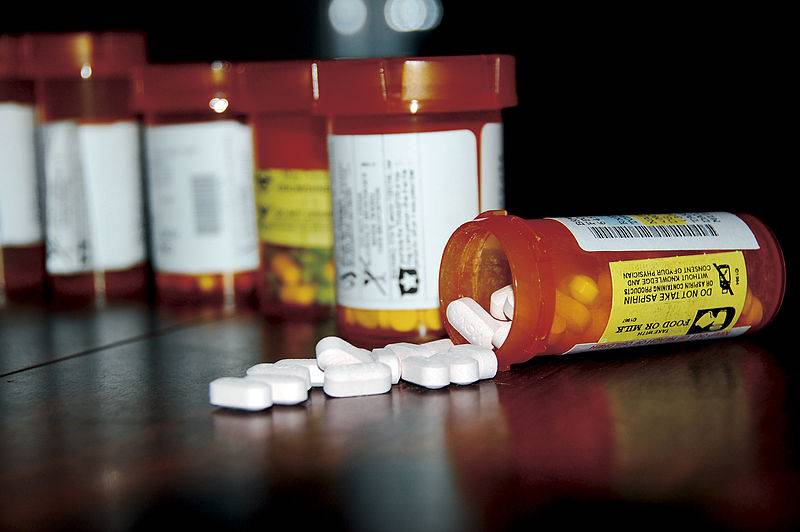Medical Waste Disposal Buffalo, NY
MedPro Disposal helps healthcare providers in Buffalo, NY save an average of 30% on their medical waste disposal.
Buffalo, New York Medical Waste Disposal Services
MedPro Disposal offers medical waste disposal, infectious sharps waste management, OSHA compliance training including bloodborne pathogens training and certification, and HIPAA-compliance document shredding and data destruction services. MedPro Disposal keeps your practice safe and compliant so you can focus on what matters most, your patients.
Industries We Service
Take the MedPro Disposal challenge!
See how much MedPro Disposal can save your practice!
It’s Easy to Get Started With MedPro Disposal

Contact Us
Contact MedPro Disposal for a fast, free medical waste removal quote. We’ll get to know you, discuss your needs, and settle on a number. You may be surprised at how much you can save on medical waste disposal with MedPro Disposal.

Waste Pickup Date
Work with MedPro Disposal to determine your first pickup date. We’ll confirm your office hours and provide convenient options for medical waste and sharps pickup.

Compliance Survey
Complete a compliance survey. After we get to know your requirements, we’ll send you a survey to identify any areas that need to be brought up to OSHA standards.
All three steps occur at no additional cost to your practice. You’re on your way to safe, affordable, compliant medical waste removal!
Contact MedPro Disposal Today for a Fast, Free Quote!
Buffalo, NY
Buffalo is the second most populous city in the state of New York, after New York City. Located in Western New York on the eastern shores of Lake Erie and at the head of the Niagara River across from Fort Erie, Ontario, Canada, Buffalo is the seat of Erie County and the principal city of the Buffalo-Niagara Falls metropolitan area, the largest in Upstate New York. Buffalo itself has a population of 261,310 (2010 Census) and the Buffalo-Niagara-Cattaraugus Combined Statistical Area is home to 1,215,826 residents.
Find Out How Much You Can Save Instantly
Try our on-line savings calculator.
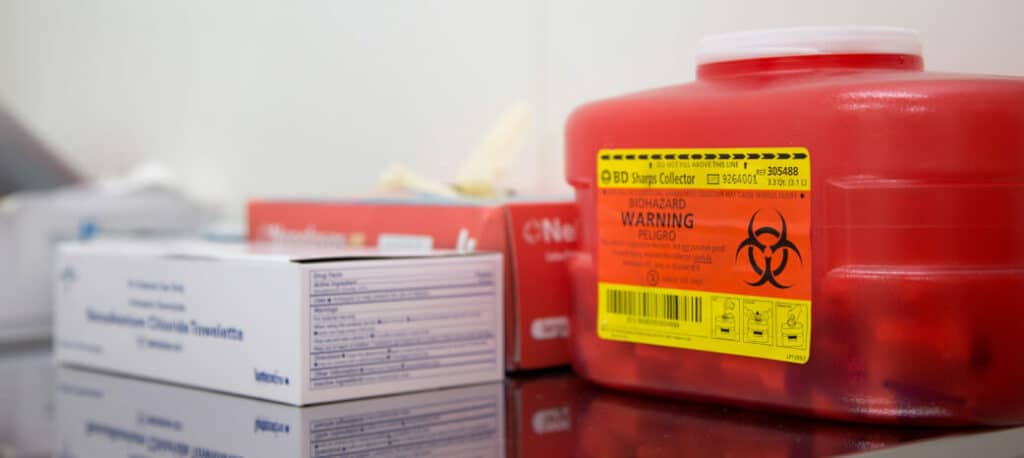
Medical Waste Disposal Buffalo, NY
Located on the eastern shores of Lake Erie, Buffalo is New York’s 2nd most populous city with 258,703 residents. Buffalo grew substantially in the 19th and 20th centuries, thanks in part to the Erie Canal, railroads, and Lake Erie itself, which provided fresh water and an ample trade route to the Midwest. Home to two private healthcare systems, the city of Buffalo creates enormous amounts of medical waste, as can be imagined with a combined 11 hospitals and countless outpatient clinics. The catch is, this waste cannot be disposed of in a standard landfill, as there are many federal and state regulations governing medical waste, due to the potential health concerns for residents and the environment of Buffalo alike.These regulations are the reason MedPro Disposal exists and is one of the nation’s premier medical waste haulers. Medical waste can be classified as many things, but a good rule of thumb is, anything that comes into contact with bodily fluids is medical waste. This can include, but is not limited to: IV bags, soaked bandages, gauze pads, human tissue, and used sharps. Immediately following the use of these items on a patient, they must be disposed of in the medical waste container in order to prevent the contamination of sterile environments. In 2011, over 17 million cases of infection were reported in hospitals due to the contamination of these environments, according to the CDC. MedPro Disposal is committed to reducing that number and ensuring the safe disposal of this waste. When medical waste is picked up in Buffalo, it either goes to one of our incineration facilities, or to an autoclave. Incineration is what it sounds like, where the waste is burned according to EPA regulations, and disposed of that way. Autoclaving is more advanced and involves the waste being put into a giant, stainless steel cylinder with doors one each end. One the waste is carted into the autoclave, intense heat and steam is pumped into the autoclave and the waste is sterilized that way. Following this process, the waste is then shredded into a fine texture and disposed of in a designated landfill. Along with medical waste disposal, MedPro also offers pharmaceutical disposal as well as OSHA compliance training. Our pharmaceutical disposal program is for old and unused medications, and is designed to be hassle-free for our customers. Your facility will receive a 2.5-gallon bucket along with a pre-paid shipping label. You fill the bucket with the old and unused medications, and once it’s full, simply attach the shipping label and send it off to our disposal facility. Once this occurs, your facility is provided with a brand new bucket, ready to be filled up again. Filling this bucket may take anywhere from 1 week to 1 year, which is why MedPro only charges a per-bucket fee, rather than paying monthly for a service you may not even be using. Complementing our disposal programs is our OSHA compliance portal. It is an online portal that allows an entire workforce to be trained at their own pace, eliminating the need to shut down for half a day and hire an outside consultant – a practice that wastes valuable money and work time. With our online portal, an administrator can go in and assign job-specific training for an individual or group, and then allows for their progress to be tracked and reminders to be sent. Once an employee finishes their training, all certificates of completion are stored in a central tab in the portal, which allows for fast and easy viewing, should the need ever arise. Our online portal is the most robust and comprehensive method of ensuring all your employees are OSHA compliant.
Medical costs are constantly rising, and facilities are constantly looking for ways to counter these increased costs. They are repeatedly turning to MedPro Disposal to save them money on this required service, and our customers in the Buffalo area consistently see savings in the 20-40% range. That’s thousands of dollars that can be better reinvested into your business, improving the overall satisfaction of your patients and customers.

About Buffalo:
When the Erie Canal was built in 1825, it included a port-of-call at Buffalo for settlers heading west. The canal brought a surge in population with it, and led to Buffalo incorporating as a city in 1832. In the early 20th century, hydroelectric power generated from Niagara River powered local mills and the city was nicknamed “City of Light” due to the widespread electric lighting. In 1843, the world’s first steam-powered grain elevator was built in Buffalo, and allowed for faster unloading of lake freighters as well as faster transport to barges, canal boats and rail cars.
The Buffalo Philharmonic Orchestra, one of the city’s most prominent art institutions, can be found performing at Kleinhans Music Hall. The city has jumpstarted the career of many jazz and classical musicians, as well as mainstream bands including The Quakes and The Goo Goo Dolls.
Buffalo, New York Maintains Health Security by Proper Sanitation and Waste Management
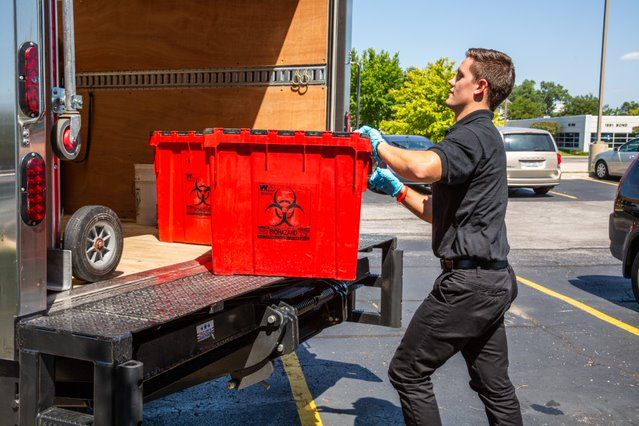
Buffalo, New York is widely known not only for being the second largest city in the state of New York, but also for the fact that it borders upon the famous Niagara Falls. Apart from this, the city boasts historically and culturally significant facts about itself, such as:
- having the most affordable housing in all of the United States,
- being the first city in the 19th century with streets that were lit with electricity,
- Is home to the Herschell Carousel Factory Museum which is the world’s sole carousel factory
In the past, the city had heavily benefitted from rapid industrialization, with the advantage of having the Niagara River generating hydroelectric power. It was because of this that the city was able to launch an automobile revolution where the first few car-prototypes were manufactured.
As of today, the industrial footprint of its head start is still prevalent in the economy of Buffalo, New York. Primarily consisting of industrial, manufacturing, and technology – Buffalo New York brandishes a highly diversified economic sector that may not necessarily rise in one particular industry but can guarantee itself to be more insulated from industry-related externalities.
Health Care Industry
To aid productivity, especially for a labor-intensive economy such as Buffalo, New York, the city is cradled by two private healthcare systems; which houses eight hospitals and a myriad of clinics in its metropolitan area. Three of these hospitals are public, such as Oishei’s Children’s Hospital and Buffalo General Medical Center. The various clinics spread throughout the city are aided by physician practice management companies within Western New York to be able to operate seamlessly, allowing the general public to have access to healthcare albeit the small number of hospitals within the city.
Hospitals and private clinics and practitioners offer a high quality of healthcare. In fact, both Buffalo General Medical Center and Gates Vascular Institute have earned a high rank for their state-of-the-art research and treatment regarding neurological care. Apart from this specialization, hospitals across the board could also be observed to follow medical protocols that ensures patient safety:
- Health practitioners wearing personal protective equipment (PPEs) such as gloves, masks, and safety glasses.
- The use of EPA-approved disinfectants
- Mindfulness of the OSHA (Occupational Health and Safety Administration) blood spill procedure of cleaning up sharps/needle sticks by employees.
- The hiring of qualified biomedical waste disposal companies within Buffalo, New York that are compliant with OSHA and HIPAA guidelines.
Biomedical Waste Management
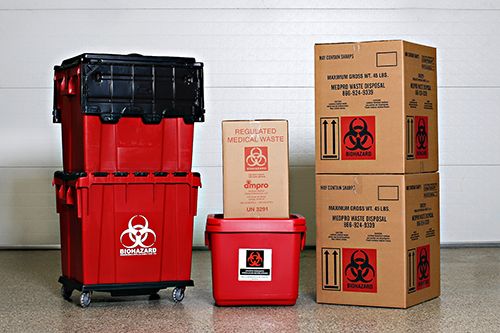
There is a fundamental significance around waste management, collection, and recycling. In general these are intrinsic to the health of both the environment in every city and the health of its population. Especially in the current century, where there is a global recognition to protect the environment, as well as its link towards lessening health risks; there is more significance and emphasis around proper waste management.
In the past, countries merely incinerated wastes and people thought it to be sufficient and passable as waste management; because these methods are highly pollutive. Alongside global consciousness, industries that are built around waste management have also evolved alongside tighter restrictions around international standards. Now, waste management companies offer a variety of services in terms of both collecting and disposing of waste.
This is especially true for the case of biomedical waste management.
Collection and Types of Biomedical Waste in Buffalo NY:
An effective waste management system is possibly the most understated yet critical aspect of healthcare. Every day, thousands of wastes are generated by healthcare facilities such as: research centers/laboratories, hospitals, clinics, and even tattoo shops. All of them pose risks and require strict protocols for proper disposal. Hazardous and toxic medical wastes could also pose a number of risks: Hepatitis A & B, HIV, chemical burns, and toxic exposure to pharmaceutical products.
These medical wastes include:
- Sharps (needles, syringes, lancets, infusion sets, epi pens, insulin pens, scalpels, scissors, etc.)
- Liquid Waste (blood, bodily fluid, etc.)
- Solid Waste (Non-sharp items contaminated with any bodily fluids or biological material. For example: gloves, pipettes, towels, and etc.)
Sharps & Biohazard Disposal
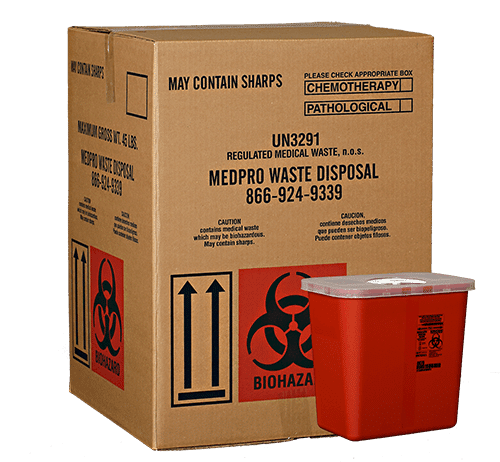
While needles save countless lives in hospitals, the risks that improper biohazard waste and sharps disposal poses can go from injuring an individual, to putting them at risk of exposure towards hazardous chemicals and potentially infectious bodily fluids.
Hence, their disposal is of utmost significance. The recommended and enforced way of disposing sharps is through disposing them in their prescribed special sharps disposal container and then hiring reliable companies with proper certifications to collect and dispose of these biomedical wastes.
Best Practices:
A reliable biomedical waste management company would consider a couple of protocols to ensure safety throughout the process of disposal. Generally speaking: the first step is appropriate segregation of healthcare wastes. Non-hazardous wastes must be separated from biohazard waste, and mixtures of both wastes are hazardous. This makes it easier for waste disposal companies to handle healthcare waste.
The safe handling of sharps and toxic wastes is a must.
- They must not be passed from hand to hand.
- Used needles must not be broken or bent before disposal.
- Used sharps must immediately be discarded in a sharps container. These containers must be strong enough to not be pierced through by the medical sharp that’s involved. Usually, the material used is either metal or high-density plastic.
- Infectious wastes must be, at all times, disposed of in leak-proof containers that are compatible with the material involved.
Furthermore, sharps containers:
- Must be located to avoid spillage.
- Must be kept at a height that allows safe sharps disposal.
- Must be kept away from public access.
- Must not be overfilled.
- Must be disposed of once full.
- Should be closed between uses.
- Must not be used for purposes other than sharps disposal.
- Should be disposed of after 3 months even when not full.
Buffalo, NY Local Resources
Department of Environtmental Conservation
Department of Environtmental Conservation

270 Michigan Avenue Buffalo, NY 14203

(716) 851-7000
City Of Buffalo
City Of Buffalo

65 Niagara Square Buffalo, NY 14202

(716) 852-330
Department of Health
Department of Health

95 Franklin Street Buffalo, NY 14202

716-858-7690
Supply and Other Resources for Buffalo
Public Works
Public Works

502 City Hall Buffalo, NY 14202

(716) 851-5636
Spot Coffee
Spot Coffee

227 Delaware Avenue Buffalo, NY 14202

(716) 332 2299
Buffalo Police Department
Buffalo Police Department

74 Franklin St Buffalo, NY 14202

(716) 851-4444
Buffalo Little-Known Facts
Prior to the Iroquois occupation of the region, the region was settled by the Neutral Nation. Later, the Senecas of the Iroquois Confederacy conquered the Neutrals. In 1804, Joseph Ellicott, a principal agent of the Holland Land Company, designed a radial street and grid system that branches out from downtown like bicycle spokes. During the War of 1812, on December 30, 1813, Buffalo was burned by British forces. On November 4, 1825 the Erie Canal was completed with Buffalo strategically positioned at the western end of the system. At the time, the population was about 2,400. The Erie Canal brought a surge in population and commerce which led Buffalo to incorporate as a city in 1832, with a population of about 10,000 people.
Why Choose MedPro Disposal for Medical Waste & Sharps Container Disposal in Maine?
Methods of Buffalo Medical Waste Disposal
On-site Medical Waste Collection
Package medical waste on-site, then leave it for collection by a medical waste disposal company.
Mailback Waste Disposal
Properly package and label the sharps, then send the biohazardous waste safely through the mail for disposal.
